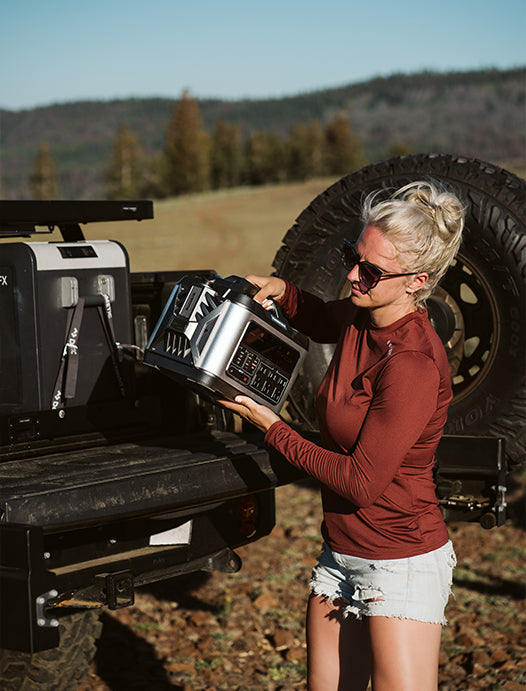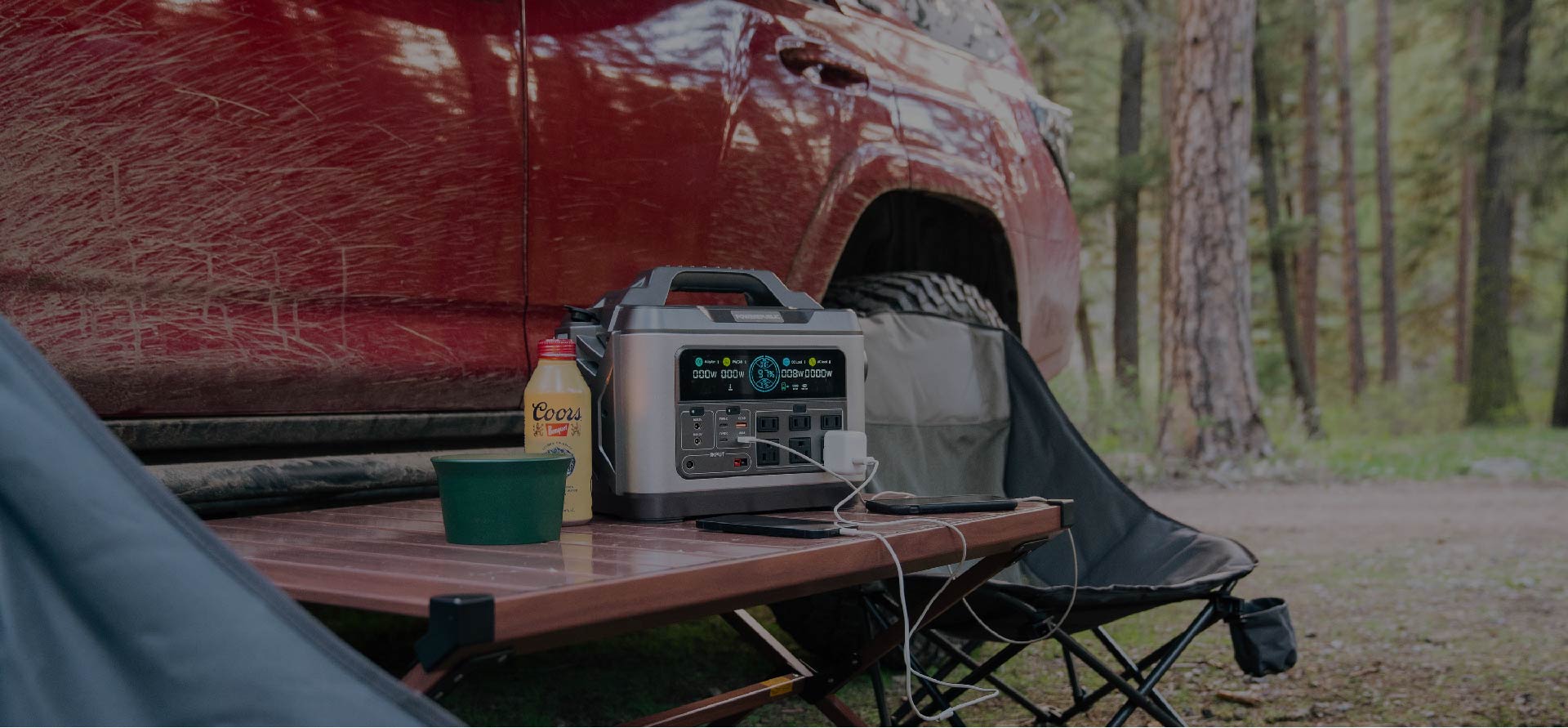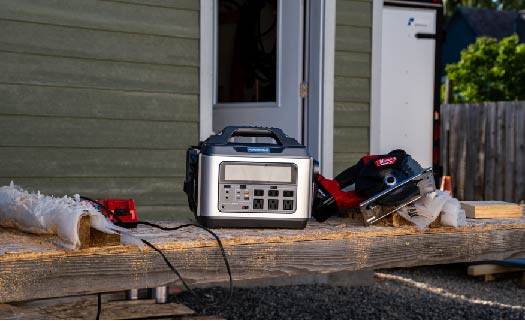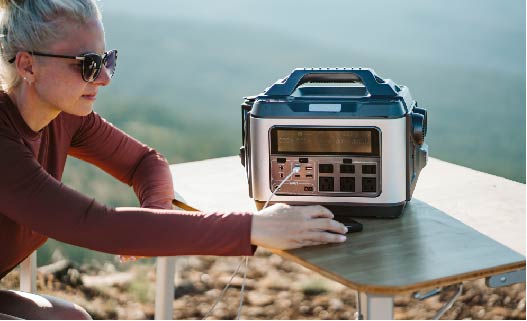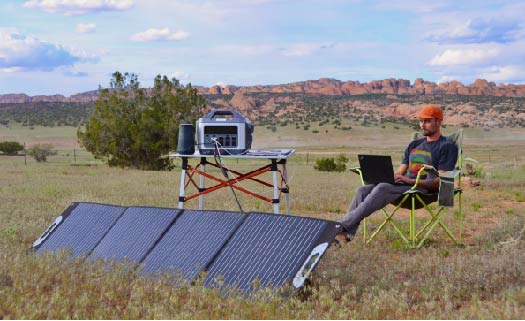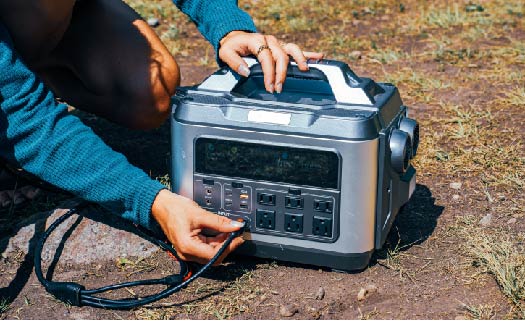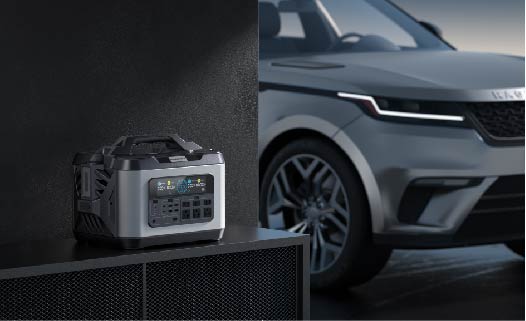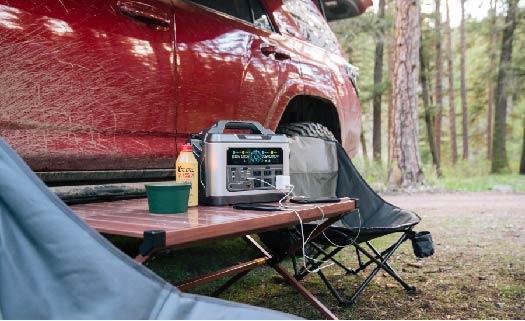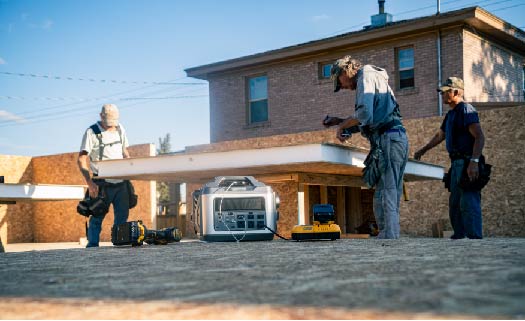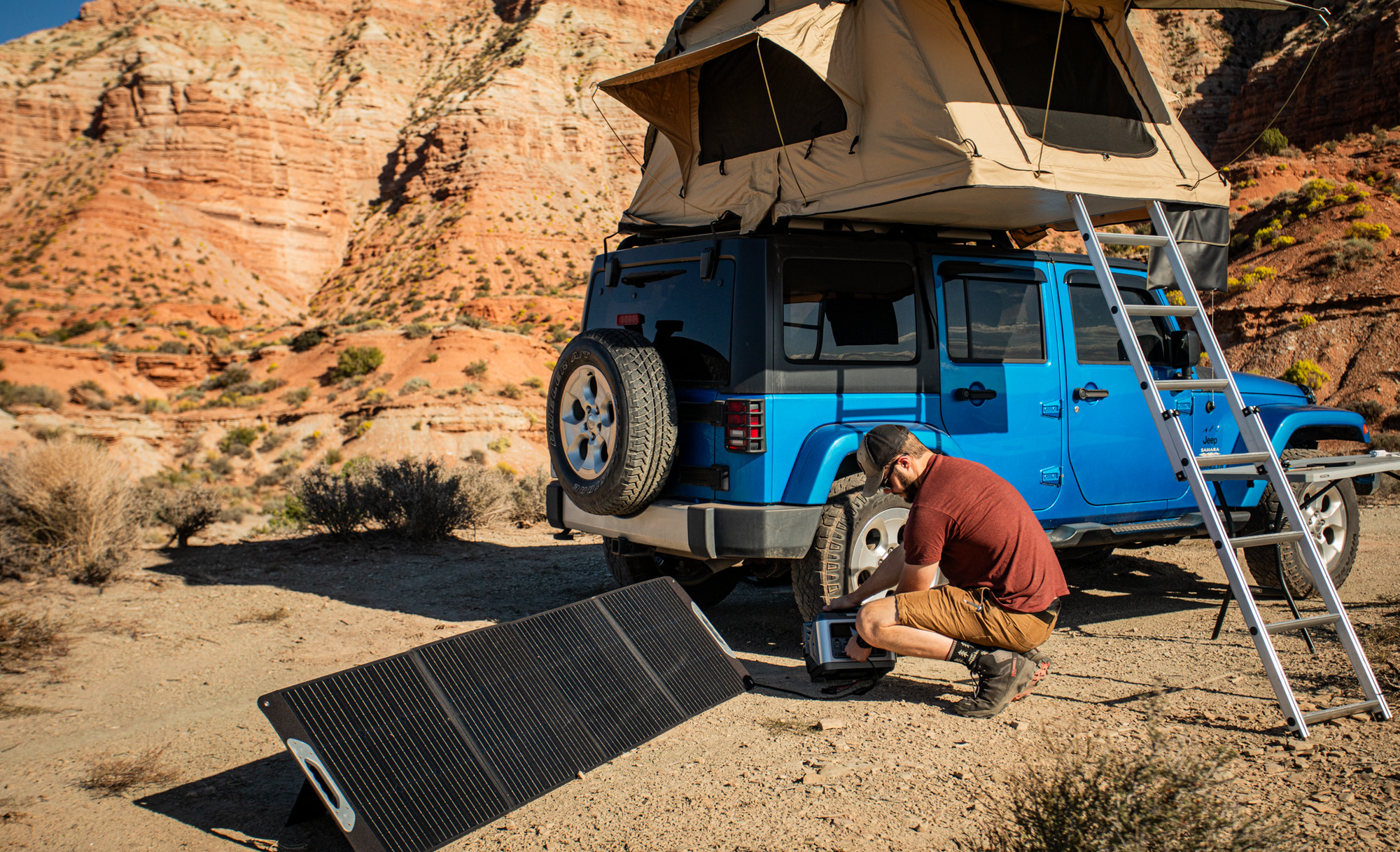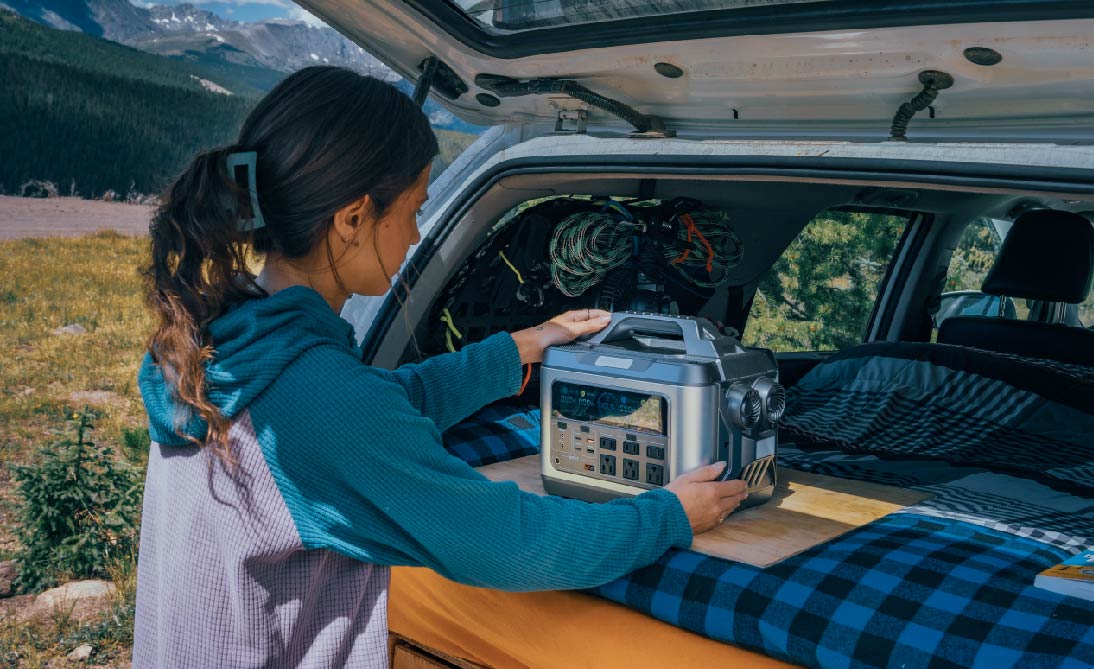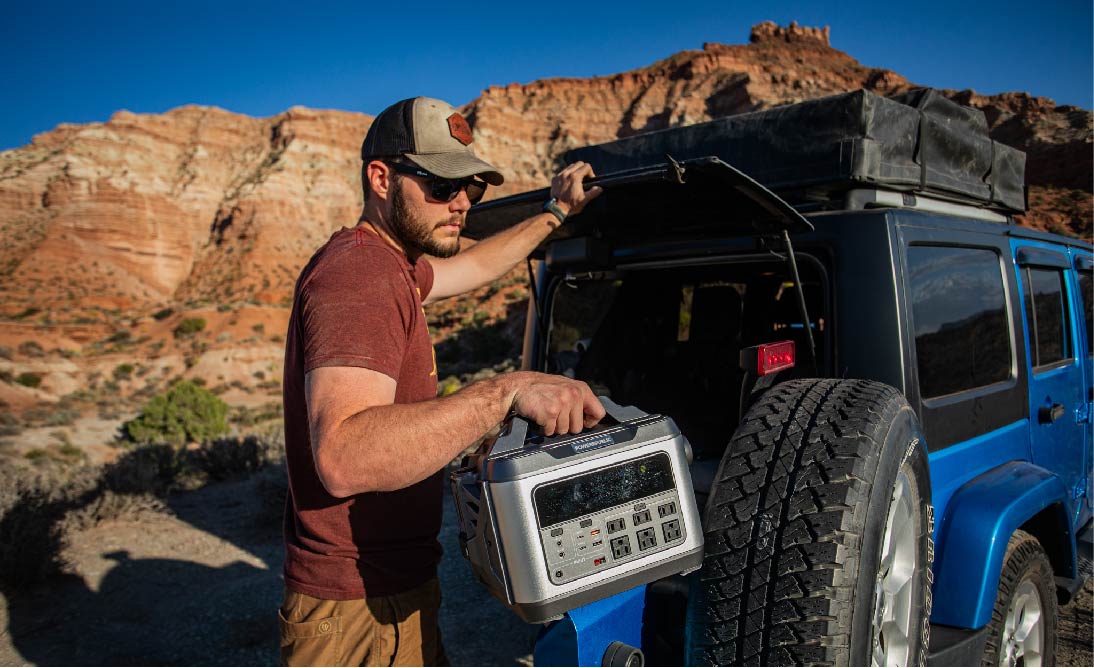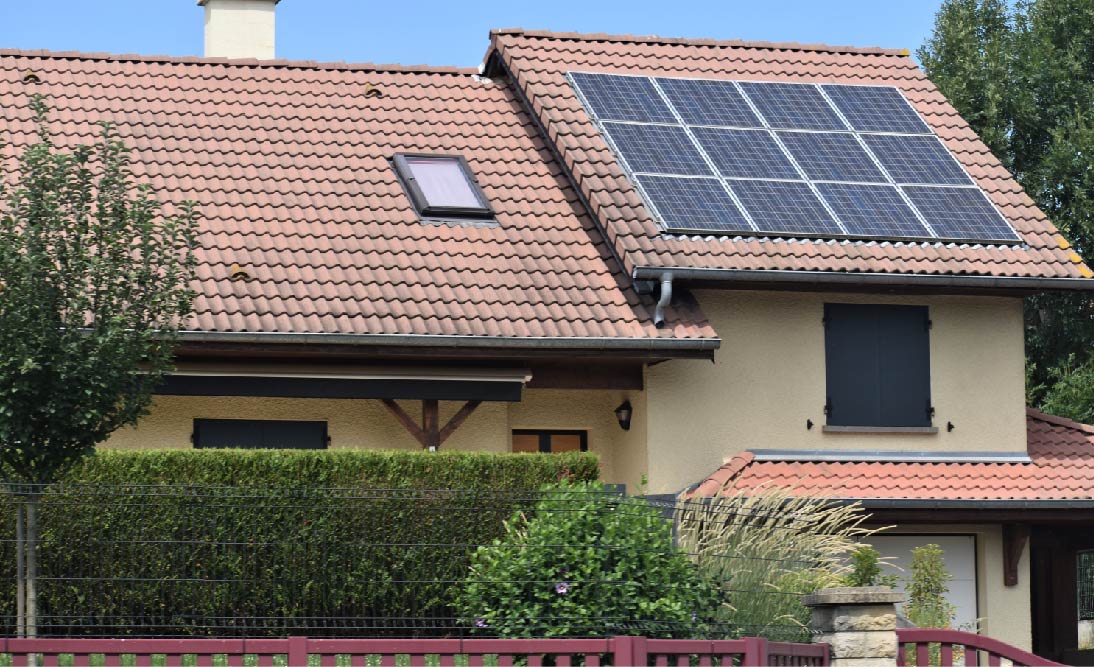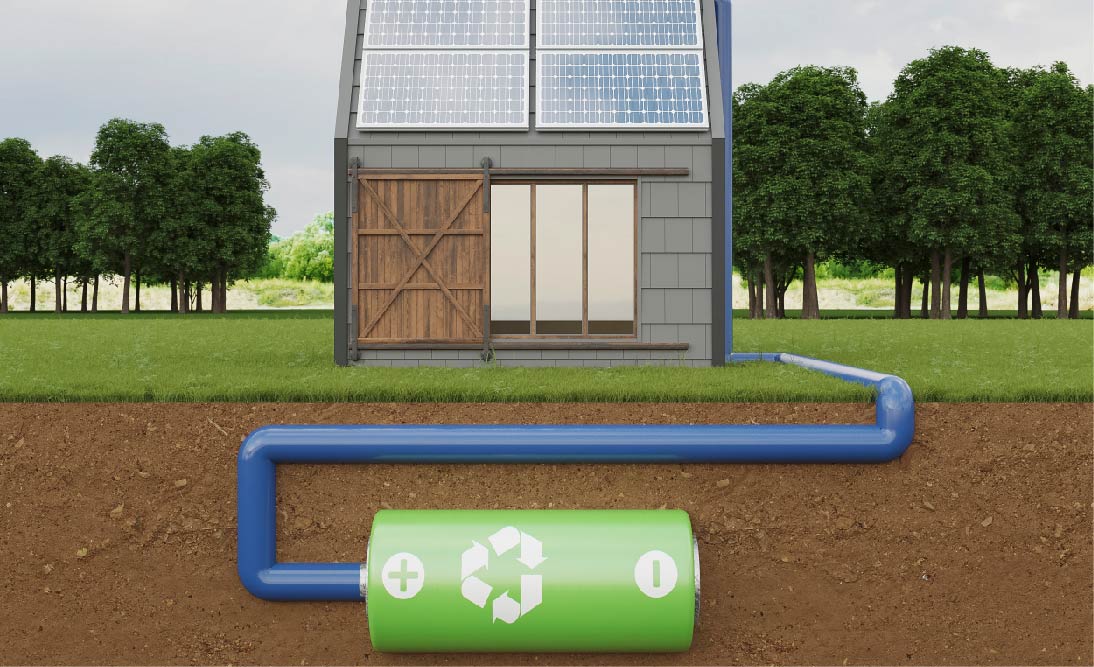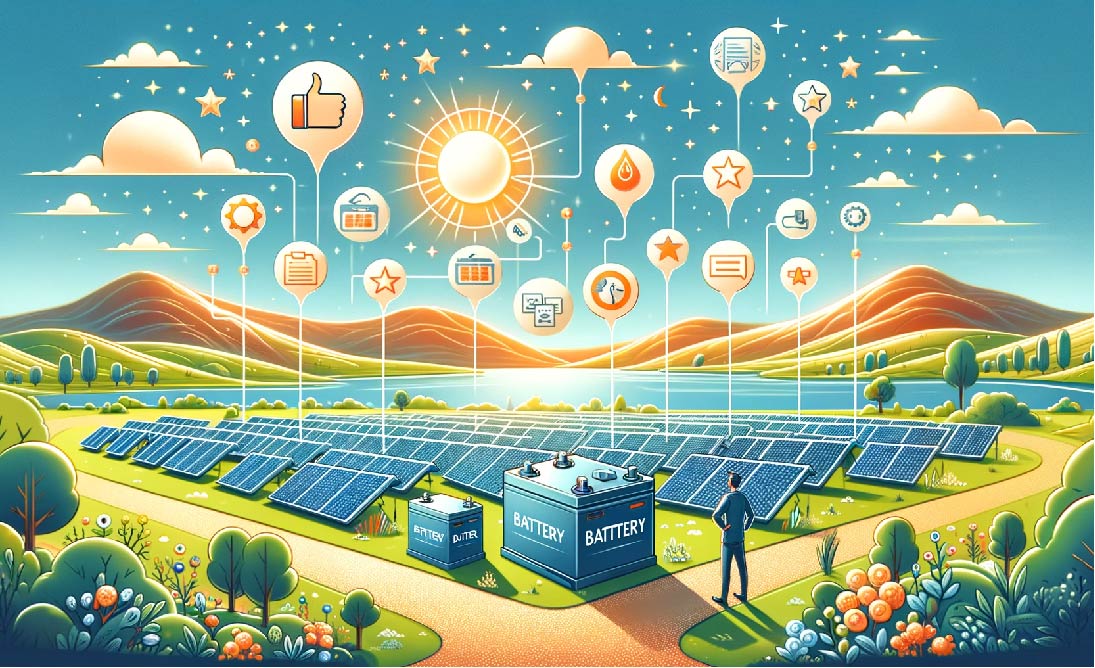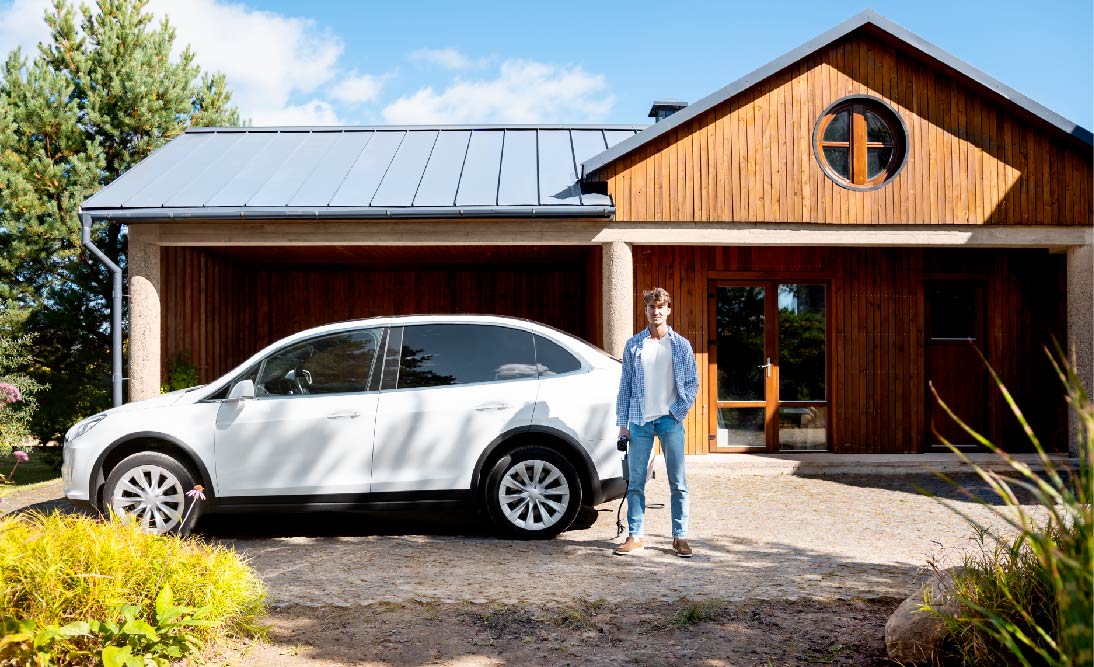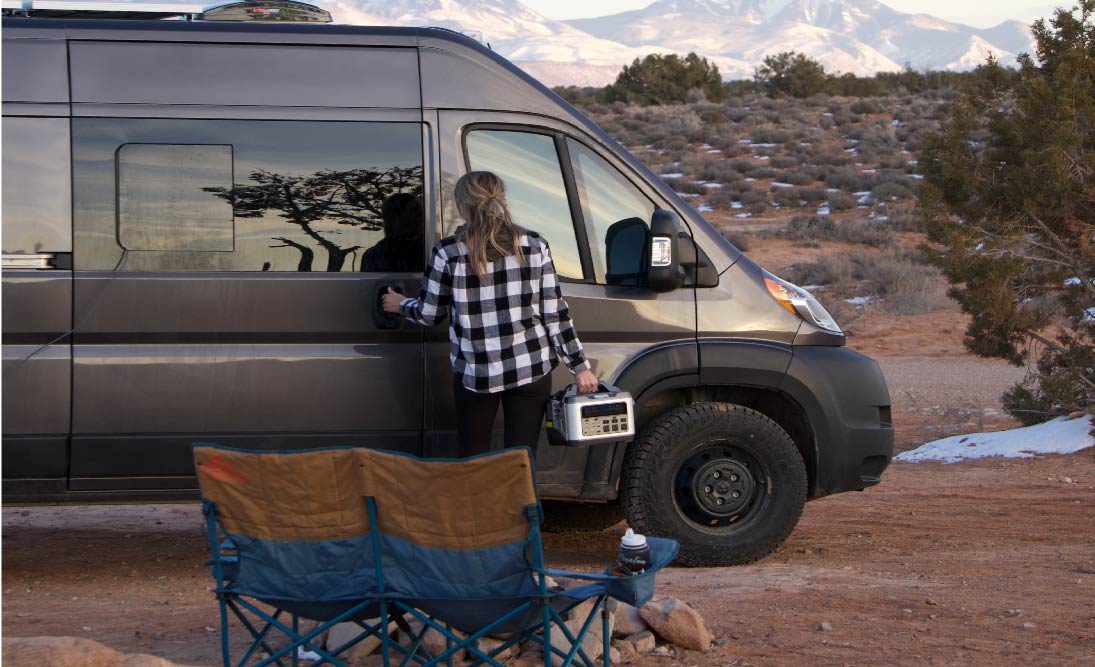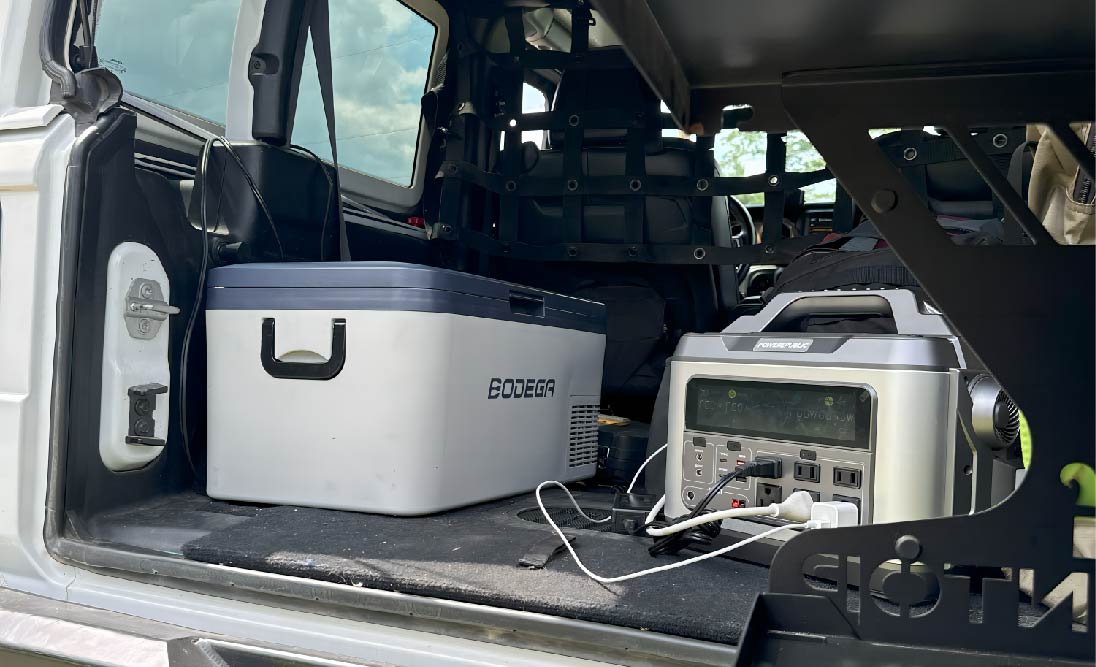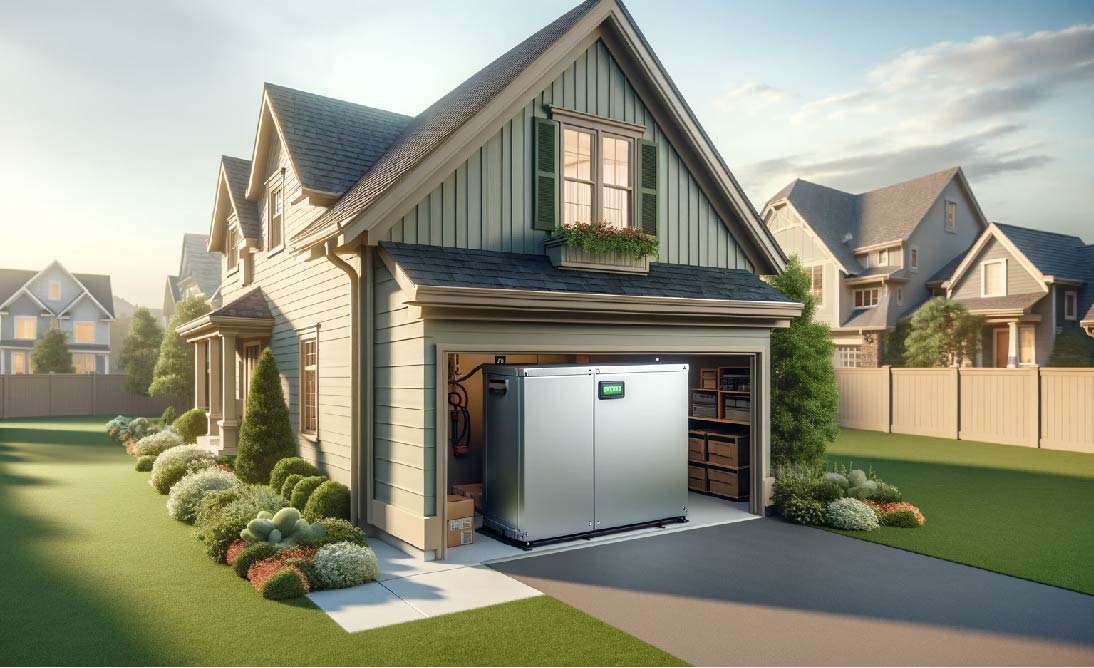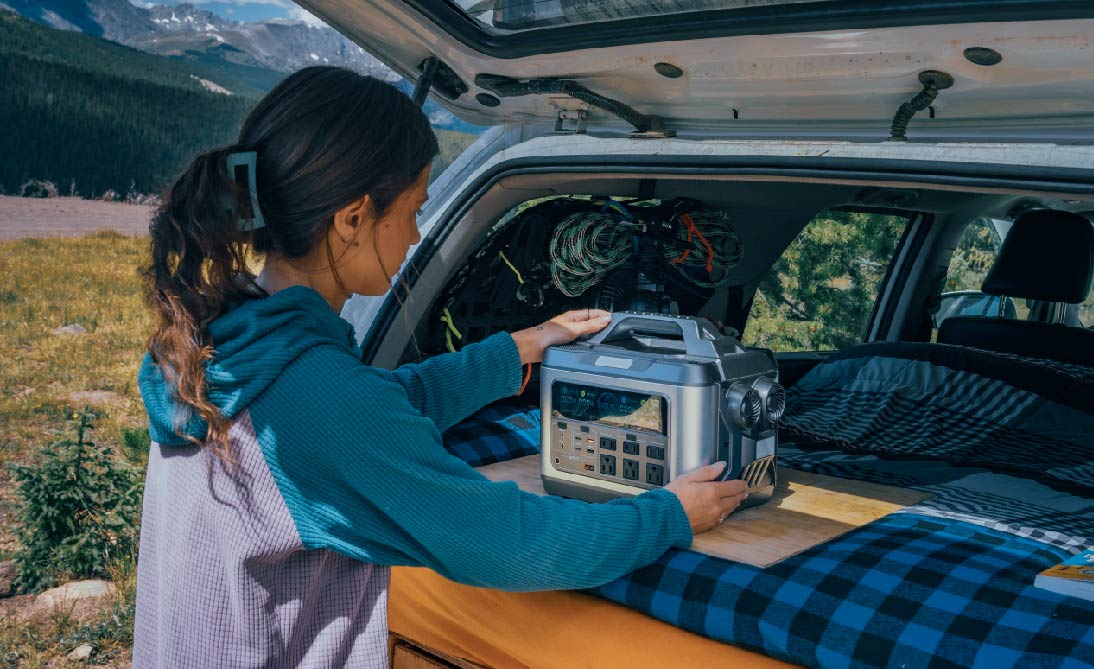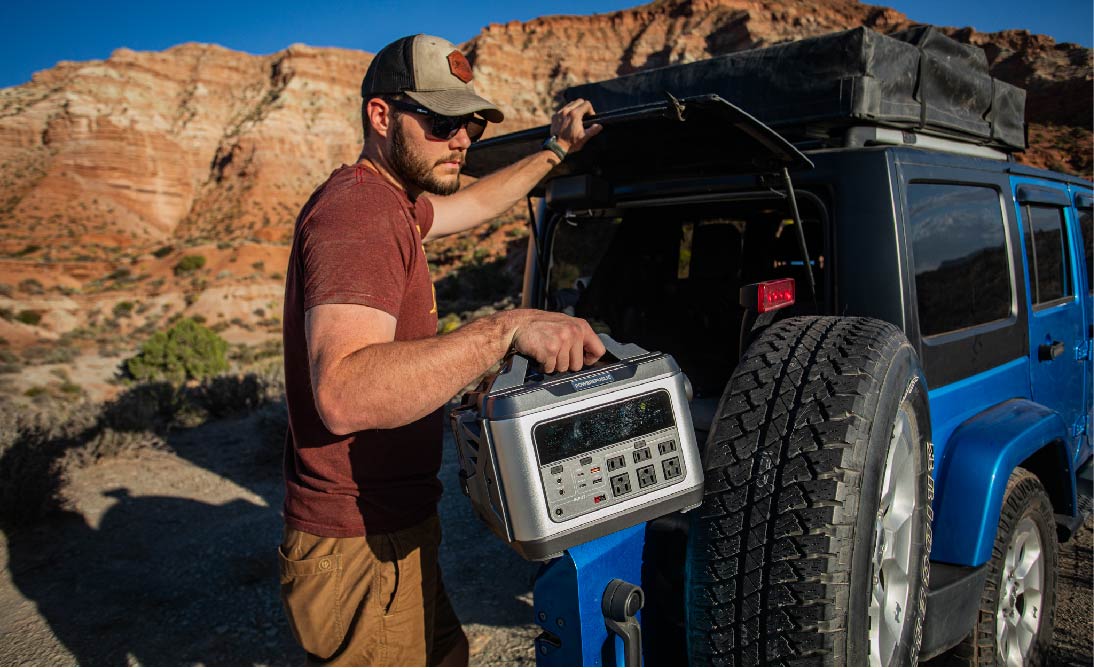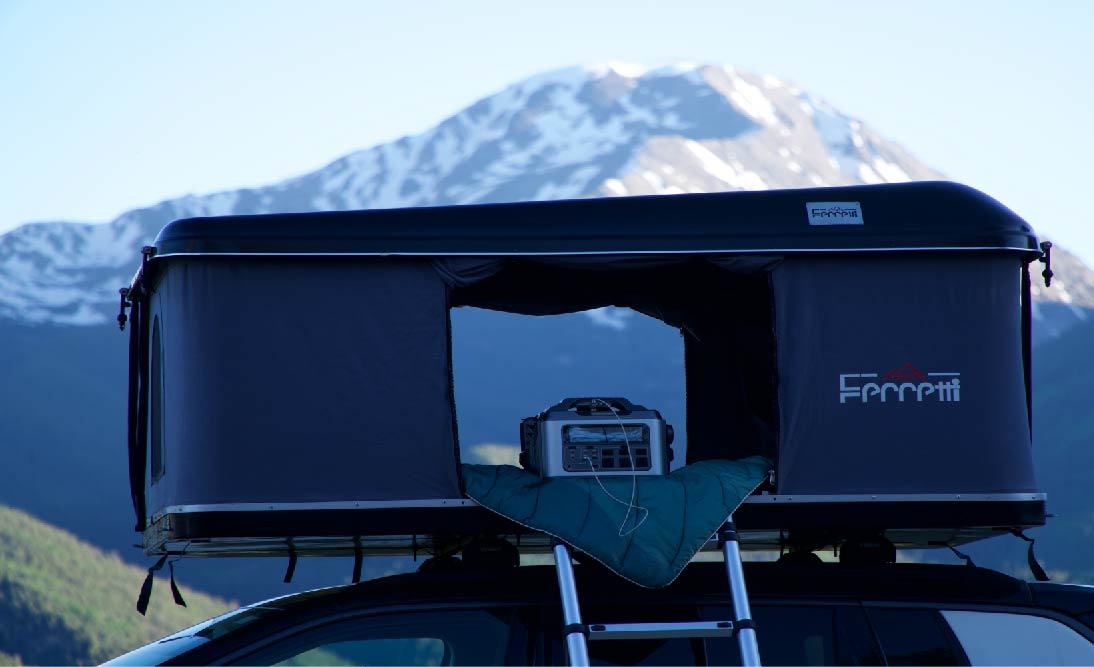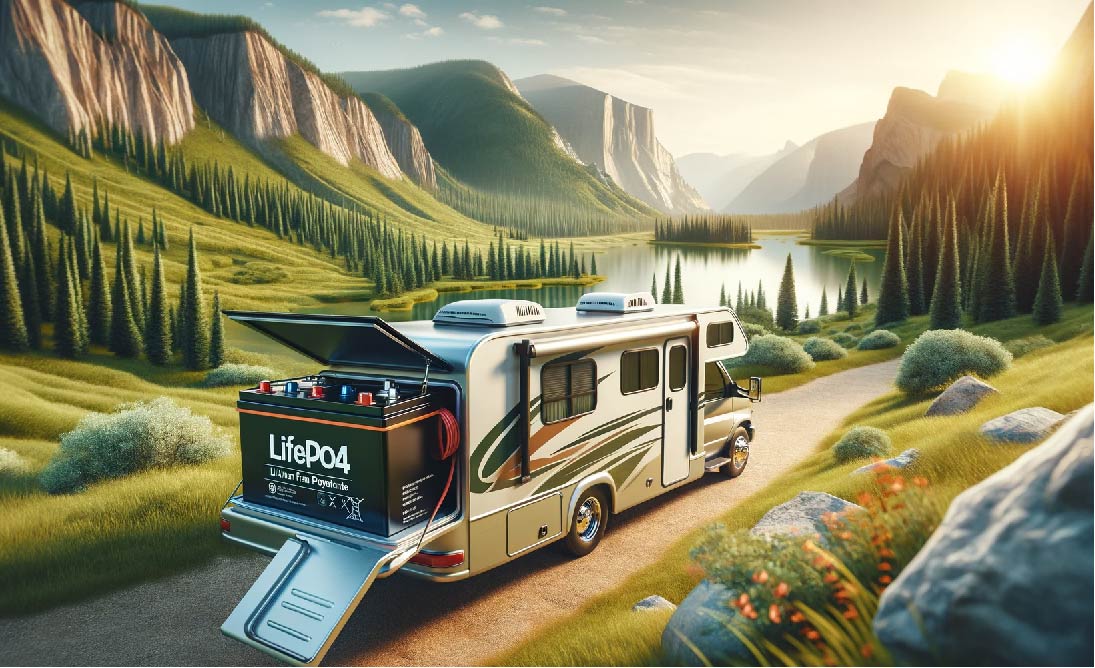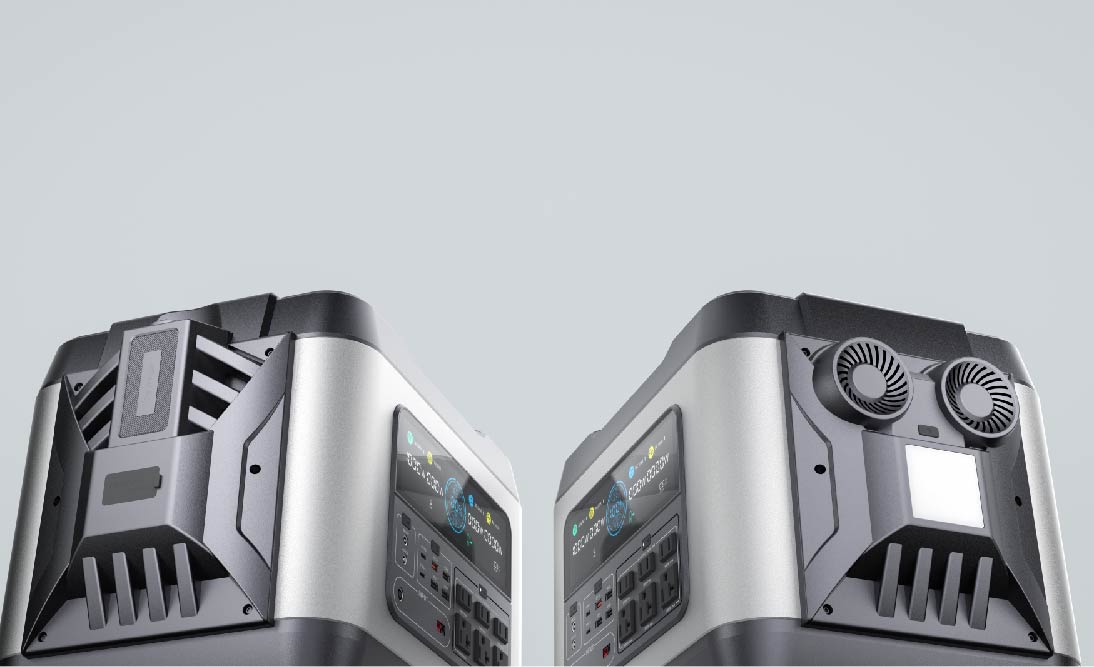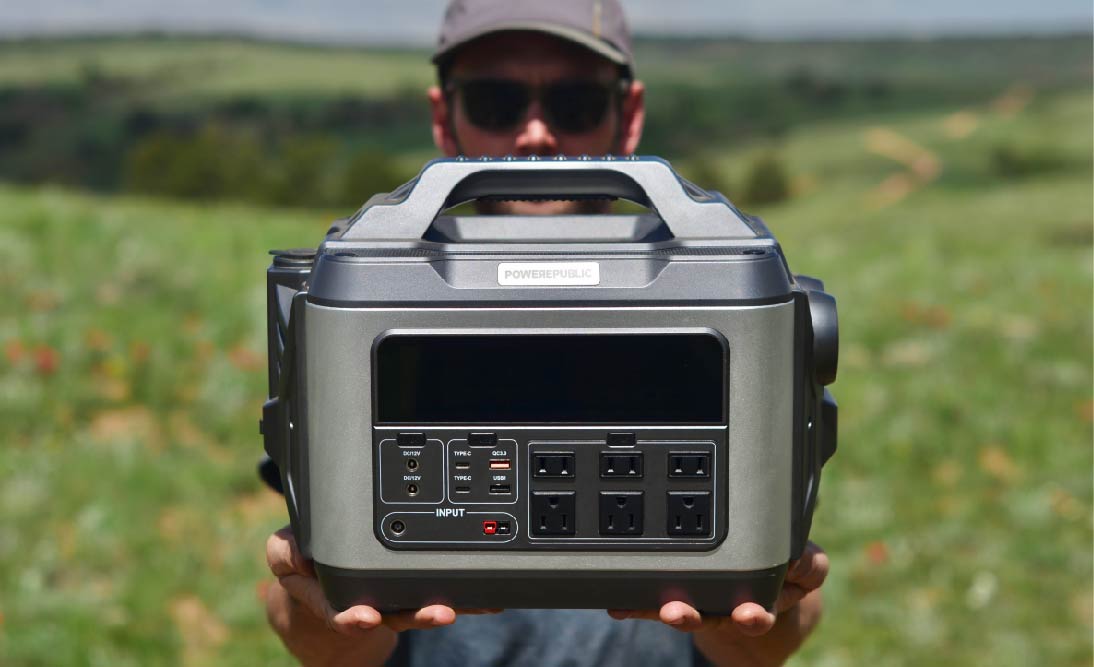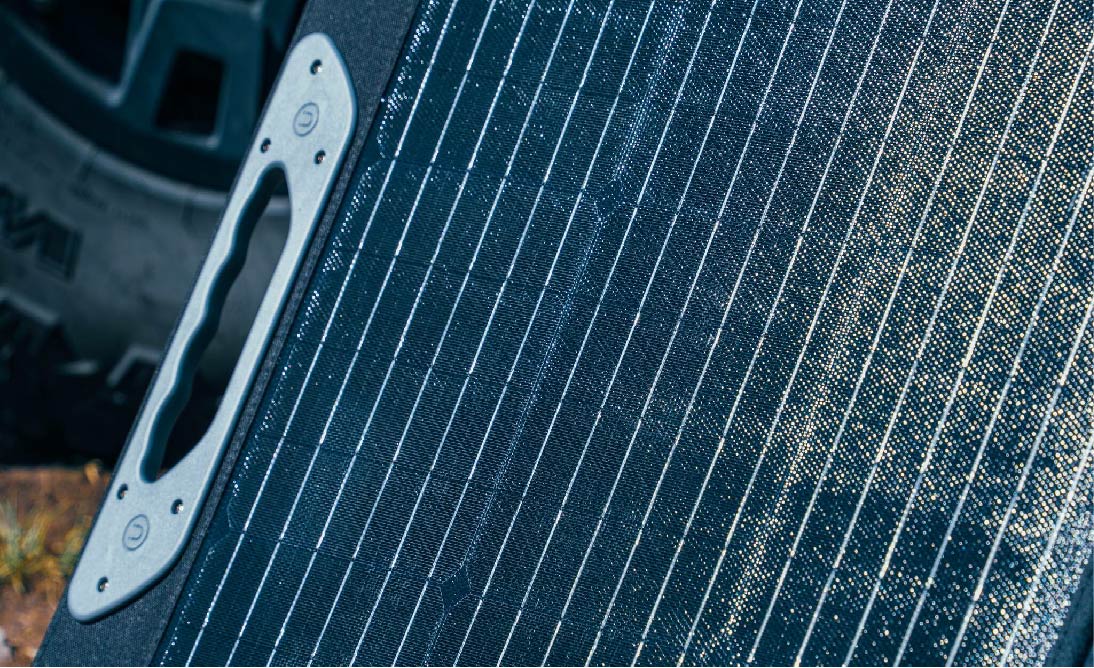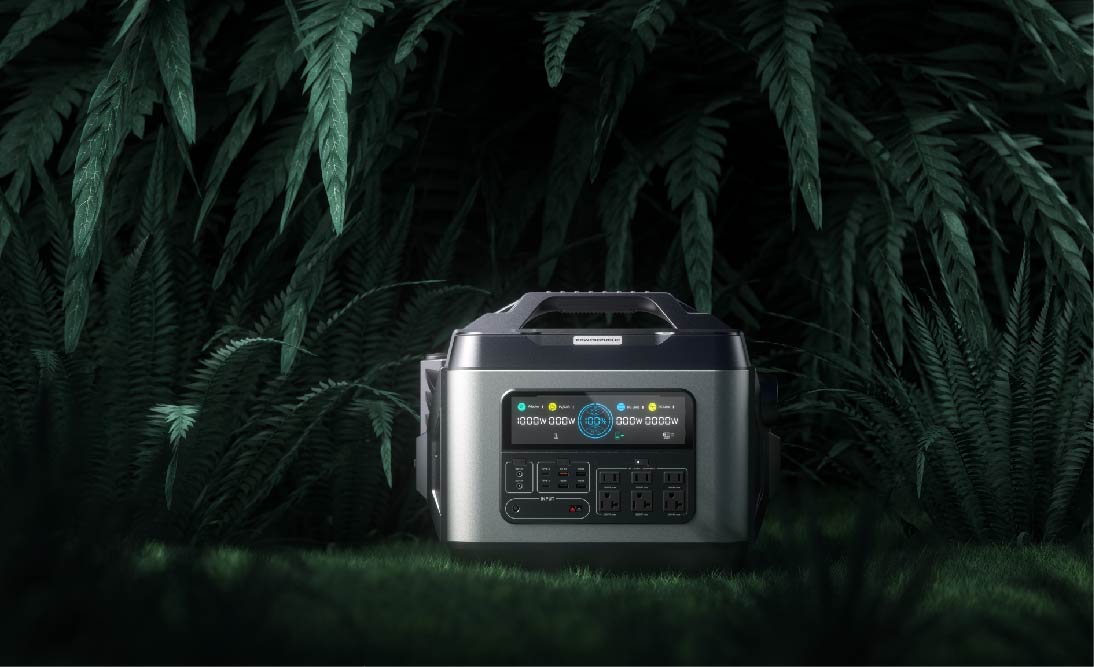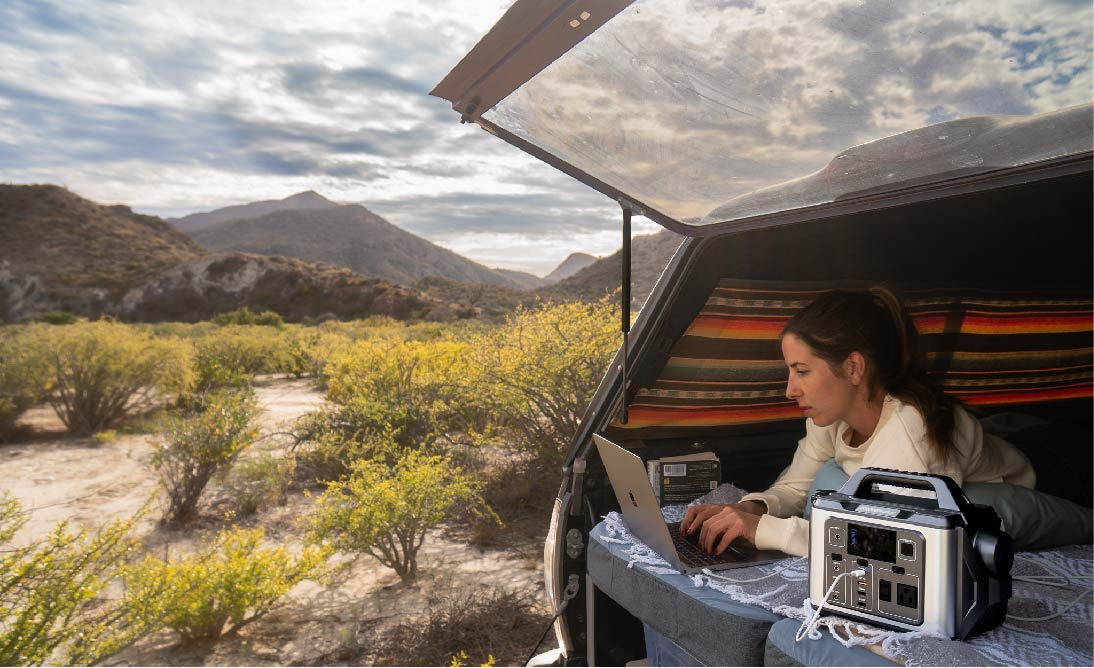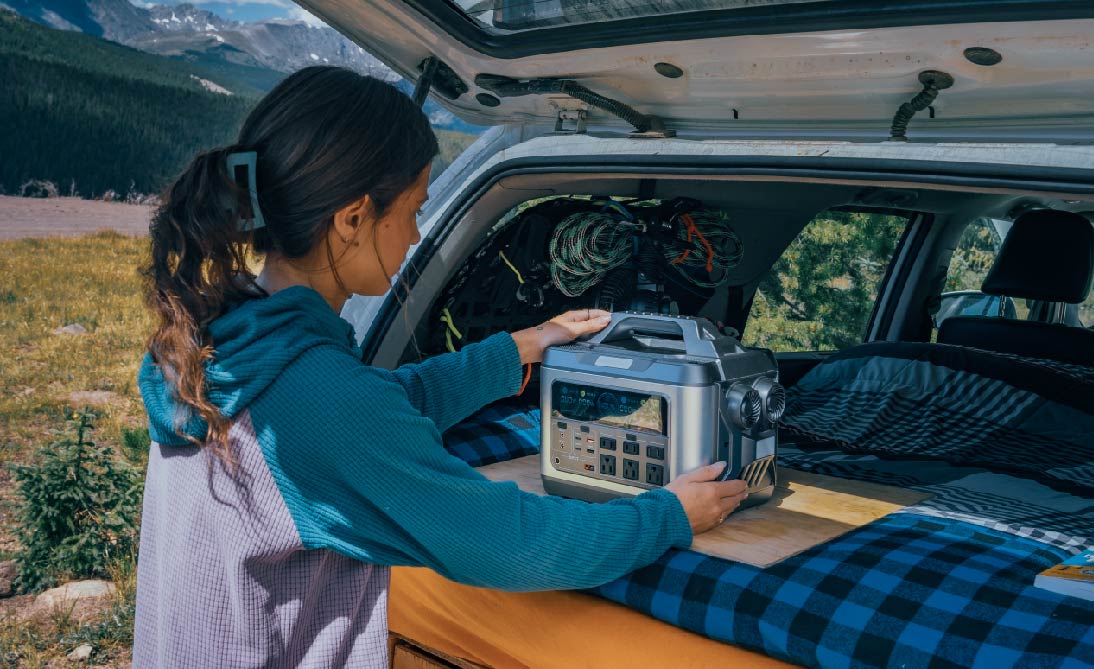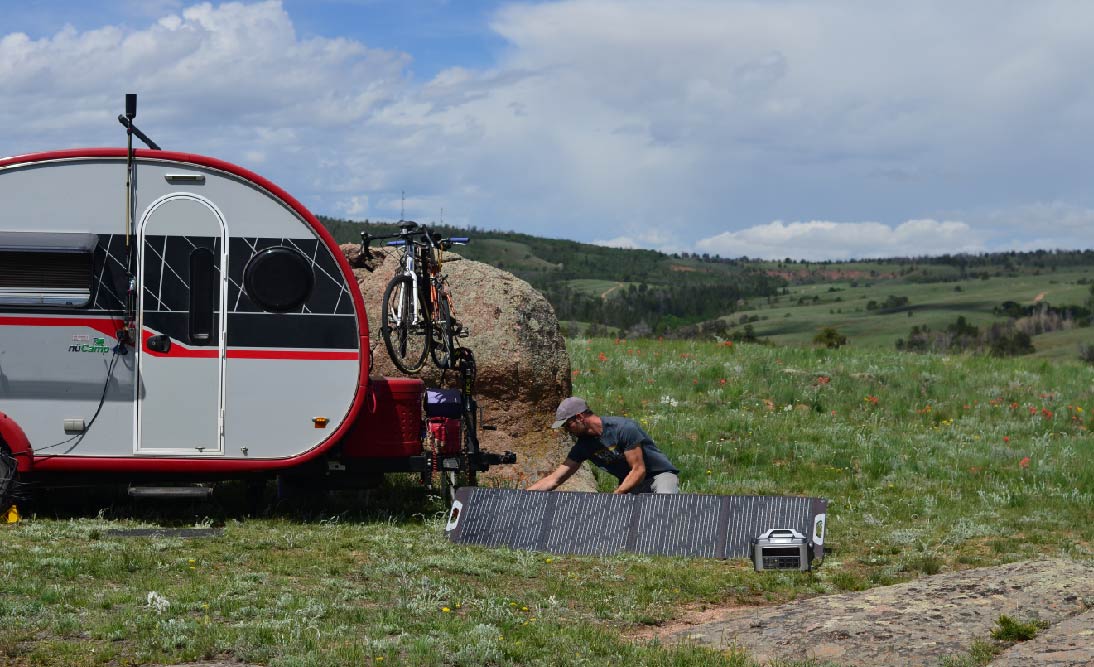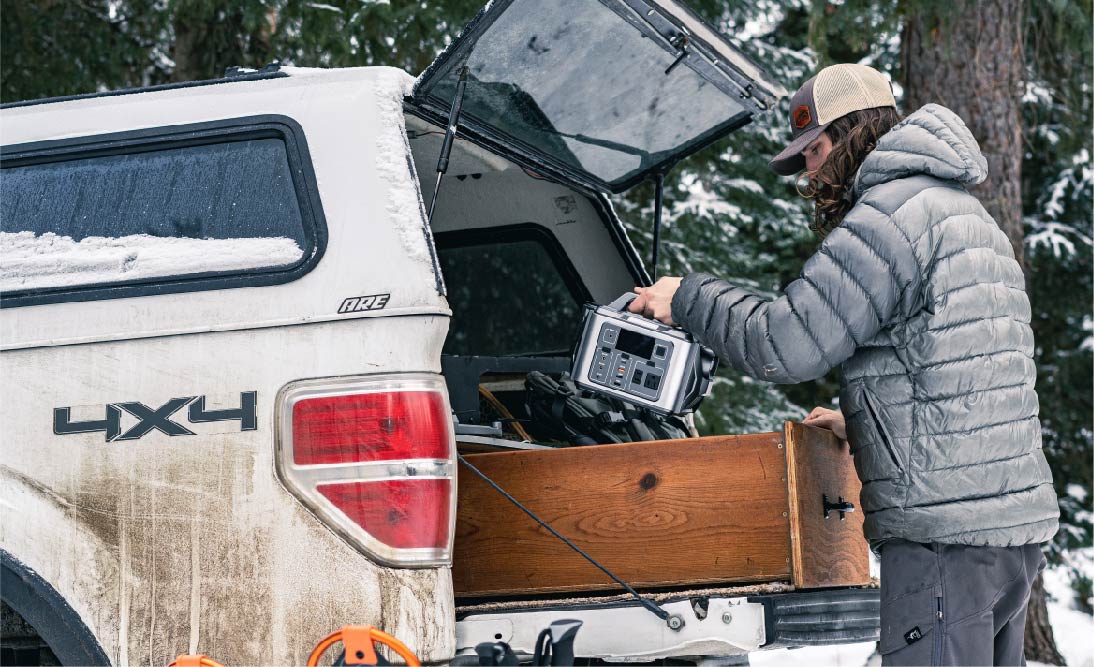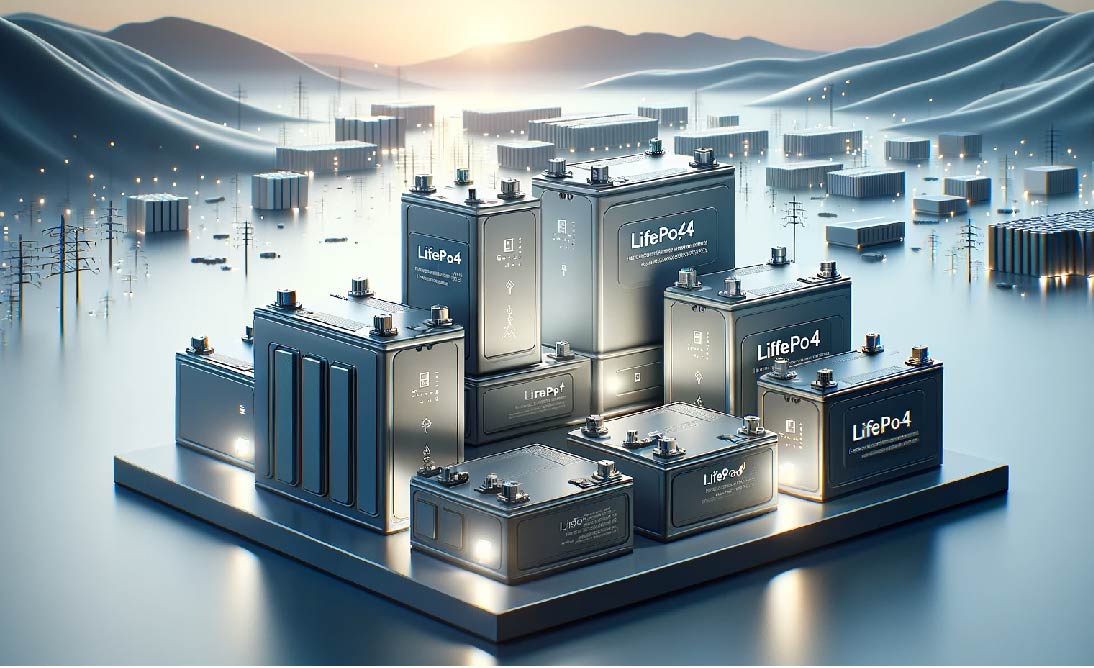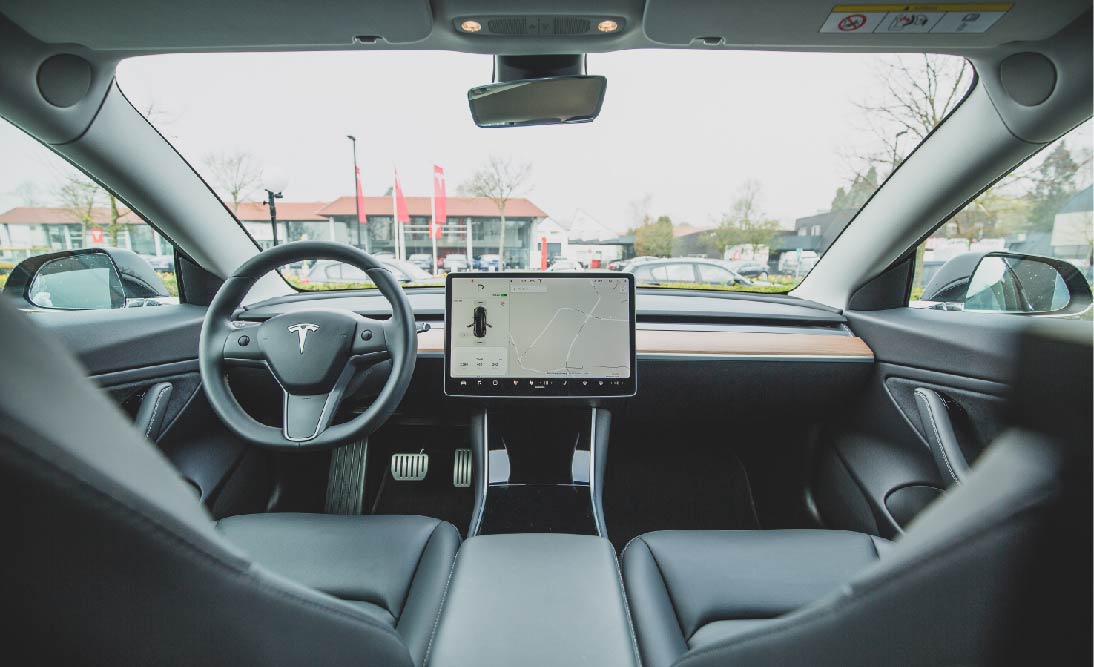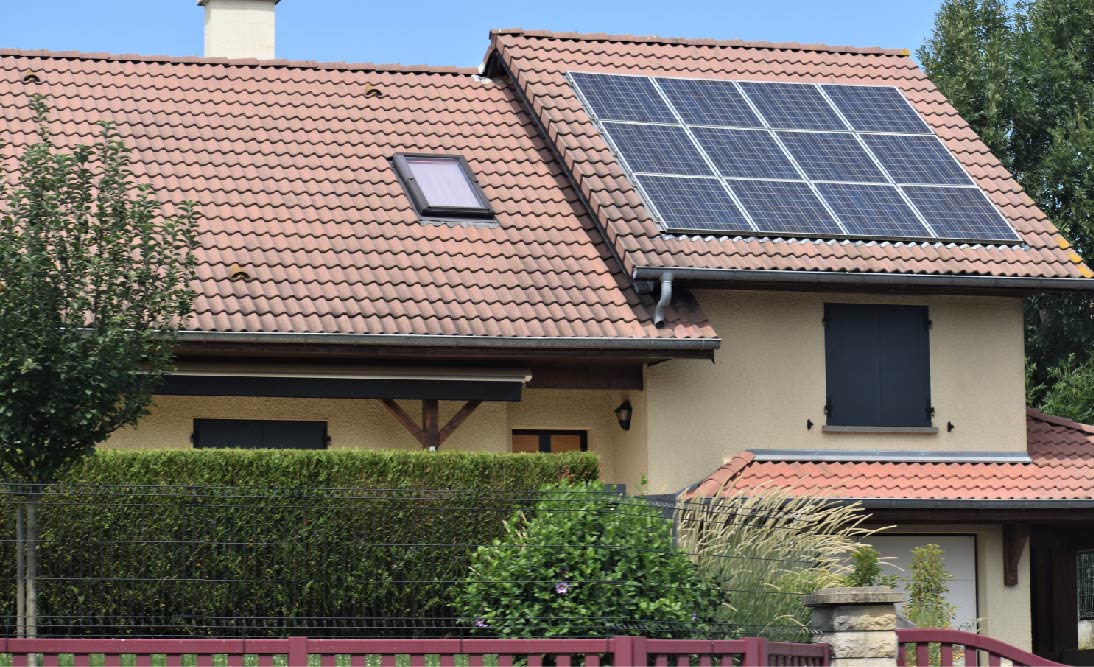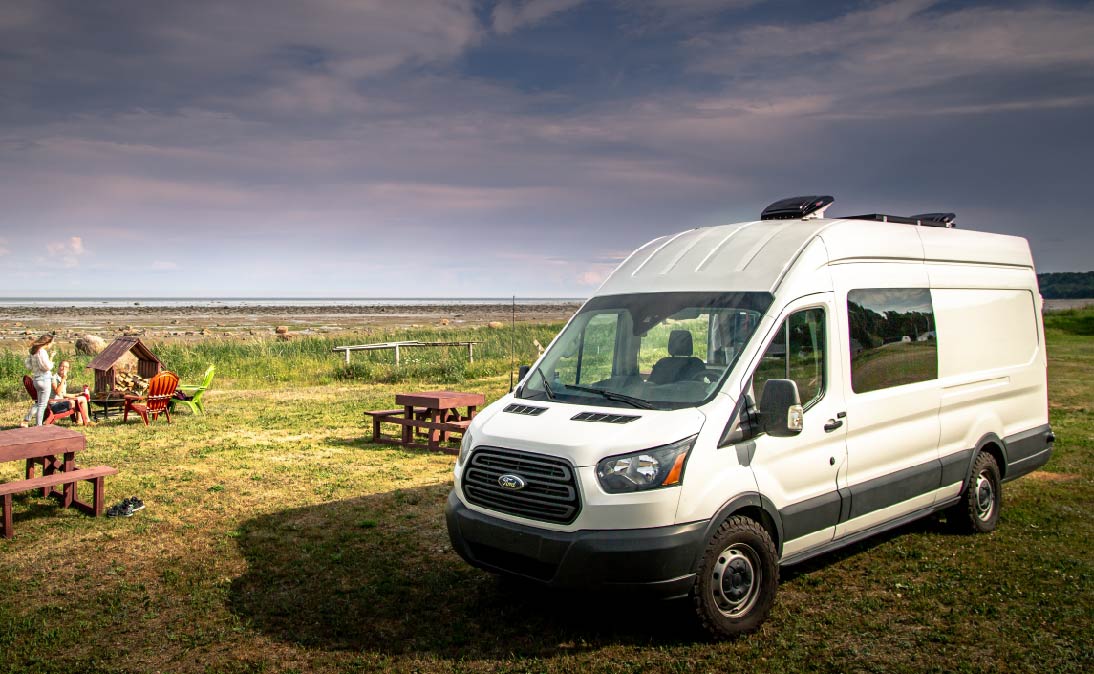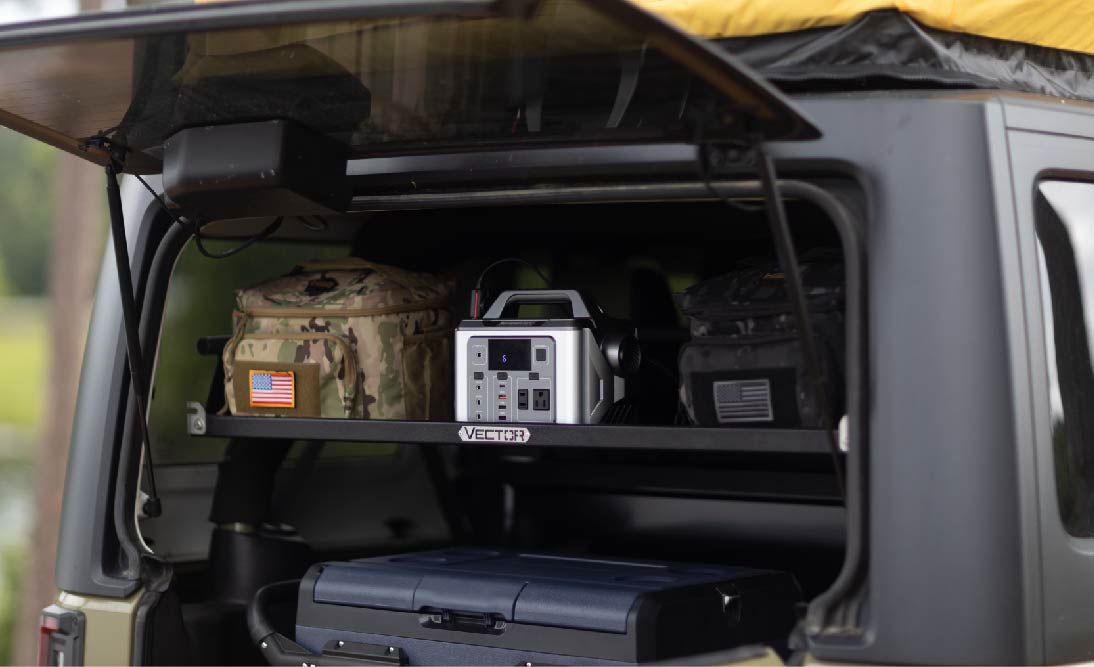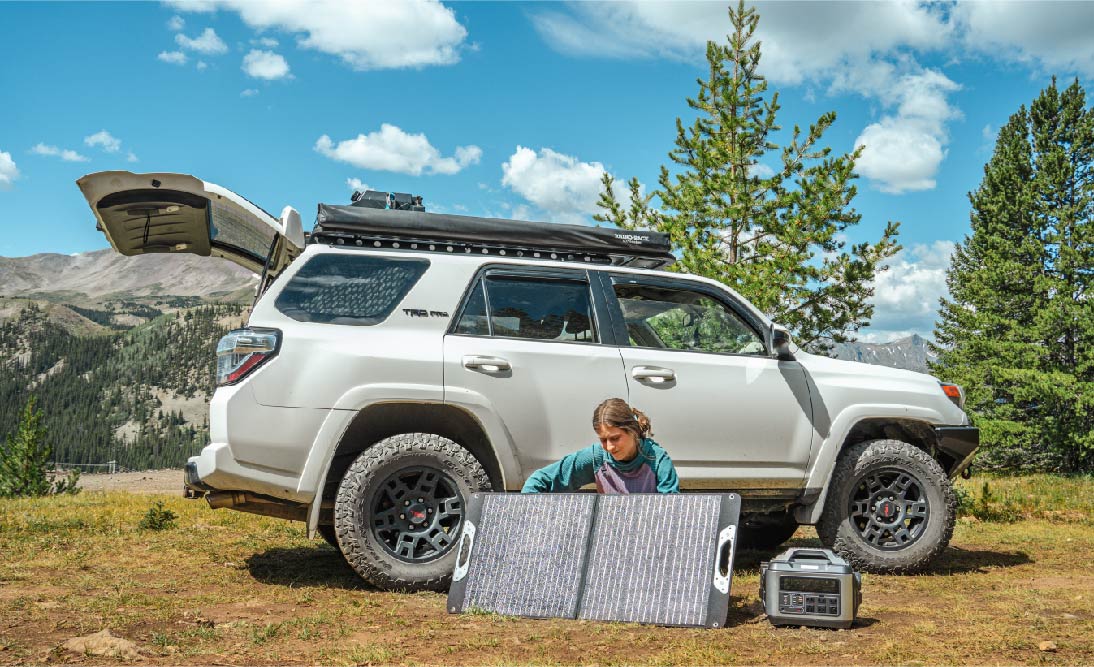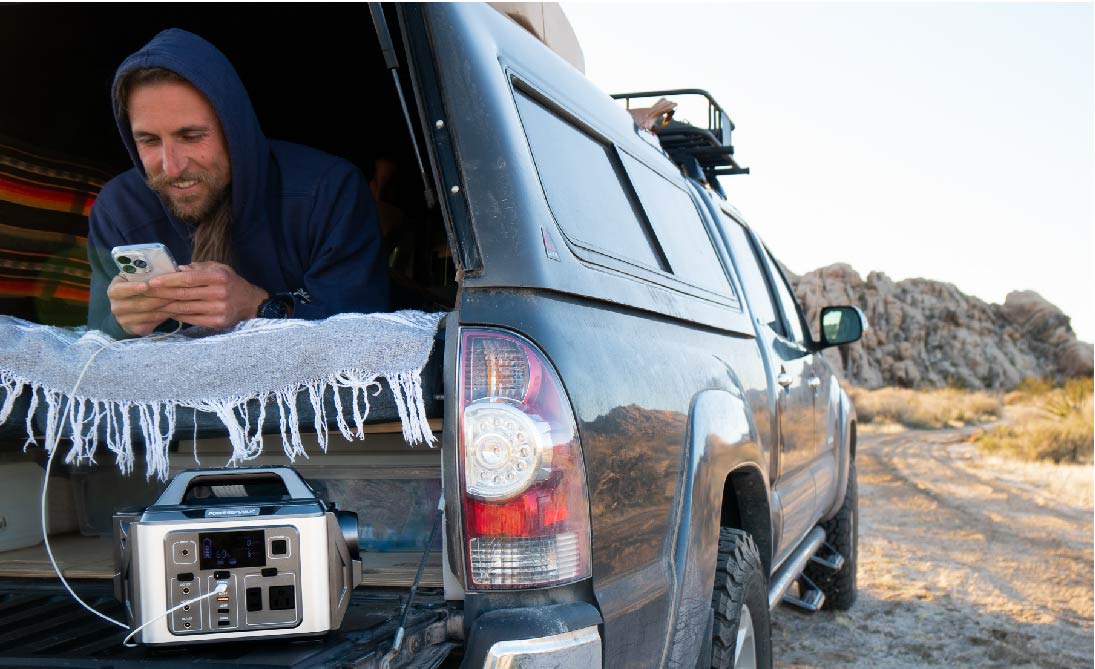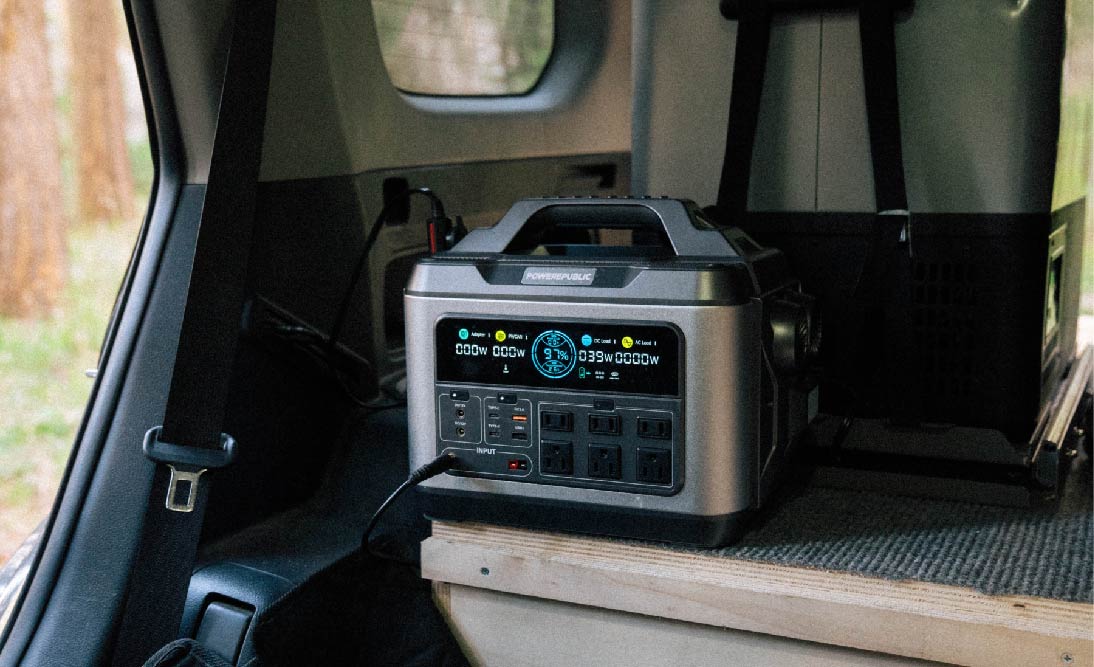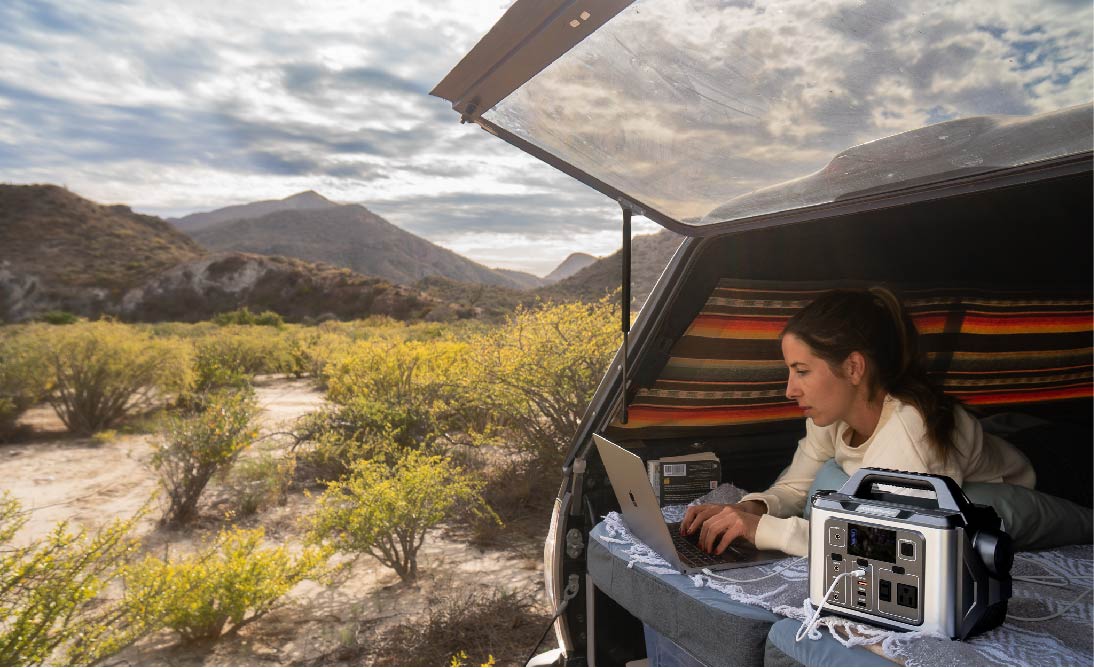Table of Contents:
Embarking on a camping trip can often lead us to confront the challenge of keeping our devices powered and our perishables preserved without access to conventional power sources. This is where the innovation of a solar-powered generator for camping becomes not just a convenience, but a necessity. Solar-powered generators for camping offer a sustainable and efficient solution to this problem, harnessing the sun's energy to provide reliable power off the grid. Whether you're looking to keep your phone charged, run a refrigerator, or power lights at your campsite, selecting the right solar-powered generator is crucial for a seamless outdoor experience.
In this guide, we will explore what a solar-powered generator is, why it's essential for camping, and how to choose the best one for your needs, including a close look at the POWEREPUBLIC T1200. We'll also answer some common questions about sizing and lifespan to ensure you're well-prepared for your next adventure.
What is a Solar Powered Generator?
1. What is it?
A solar-powered generator is a device that converts solar energy into electrical power. It consists of solar panels, a battery storage system, and an inverter. Unlike traditional gas-powered generators, solar generators operate silently, emit no pollutants, and rely solely on renewable energy from the sun. They are an indispensable tool for sustainable living and outdoor activities, particularly for camping, where access to conventional power sources is limited.
2. How Does it Work?
The operation of a solar-powered generator is straightforward yet ingenious. Solar panels capture sunlight and convert it into direct current (DC) electricity. This DC electricity is then stored in the generator's battery system. When power is needed, the inverter converts the stored DC electricity into alternating current (AC) electricity, making it usable for powering electronic devices and appliances. This process ensures that energy is available even when the sun isn't shining, such as at night or during cloudy weather.

3. Types
There are primarily two types of solar-powered generators: portable and stationary.
-
Portable solar generators are compact, lightweight, and designed for mobility, making them ideal for camping, picnics, and outdoor events.
-
Stationary solar generators, on the other hand, are larger and intended for home backup power, off-grid living, and larger-scale energy needs.
4. Applications
The applications of solar-powered generators are vast and varied. For camping enthusiasts, a solar-powered generator for camping is a game-changer, providing a reliable power source for charging phones, running small refrigerators, powering lighting, and more. Beyond camping, these generators are used in emergency preparedness, as backup power for homes, in remote off-grid locations, and for powering tools and equipment at outdoor work sites.
5. Price Range
The price range of solar-powered generators can vary widely depending on their capacity, features, and the quality of components. Portable solar generators suitable for camping purposes can range from as low as $200 for basic models to over $2,000 for high-capacity, advanced models. The initial investment is often offset by the savings on fuel costs and the benefits of having a clean, renewable power source.
For example, a mid-range solar-powered generator for camping might cost around $500-$1,000. This price typically includes a moderate-capacity battery and solar panels capable of charging the generator within a reasonable time frame. The cost-effectiveness of a solar generator becomes evident when considering the long-term savings on fuel and the environmental benefits of utilizing renewable energy.
A solar-powered generator for camping is not just a luxury but a necessity for modern outdoor adventures. It offers a sustainable, efficient, and convenient solution for powering essential devices and appliances while enjoying the great outdoors. With various types and models available, selecting the right solar generator involves considering your power needs, budget, and the specific applications you have in mind. Whether for casual camping trips or extended stays in the wilderness, a solar-powered generator is an investment in both convenience and sustainability.
Why Do We Need a Solar-Powered Generator For Camping?
Camping offers an escape into nature, presenting a unique blend of adventure and tranquility. However, this escape often comes with the challenge of maintaining access to electrical power, which is where a solar-powered generator for camping becomes indispensable. The need for such a generator is rooted in several key aspects of modern camping and outdoor life.
Reasons for Having One
1. Sustainability and Environmental Responsibility
The first and foremost reason for choosing a solar-powered generator for camping is its sustainability. Traditional gas-powered generators emit carbon monoxide and other harmful pollutants, contributing to air pollution and climate change. Solar generators, on the other hand, harness the sun's energy, a clean and inexhaustible power source. By using a solar generator, campers reduce their carbon footprint, aligning their outdoor activities with principles of environmental stewardship.
2. Accessibility to Power in Remote Locations
Many camping trips take place in remote locations far from electrical grids. In such scenarios, keeping devices charged and essential appliances running becomes a challenge. A solar-powered generator for camping ensures that you can keep your GPS, smartphones, cameras, and other essential devices charged, enhancing safety and convenience. Moreover, it allows for the use of electric lights, fans, and even medical devices, ensuring comfort and preparedness in the wilderness.
3. Running Essential Appliances
One of the significant benefits of having a solar-powered generator while camping is the ability to run essential appliances. For example, a refrigerator or cooler can be powered to keep food and drinks fresh, mitigating the risk of foodborne illnesses and extending the range of culinary options available at the campsite. This capability is particularly valuable in hot climates or during extended trips where access to fresh provisions is limited.
4. Cost-effectiveness and Energy Independence
Over time, a solar-powered generator for camping proves to be a cost-effective solution. While the initial investment may seem significant, solar generators incur no ongoing fuel costs, unlike their gas-powered counterparts. Moreover, they require minimal maintenance. This cost-effectiveness is complemented by the independence they offer; campers are not reliant on fuel supplies or nearby power sources, making solar generators a one-time investment for numerous camping adventures.
5. Silence and Peace
The tranquility of nature is often disrupted by the noise of traditional generators. Solar generators operate silently, preserving the peace of the outdoor environment. This silence enhances the camping experience, allowing campers to listen to the sounds of nature rather than the hum of a motor.
Example of Solar Generator Use in Camping:
Consider a camping scenario where you need to power a small refrigerator, charge multiple smartphones, and use LED lights during the evening. A mid-range solar-powered generator for camping, with a capacity of around 500Wh, can meet these needs efficiently.
-
Small refrigerator: 40W for 10 hours/day = 400Wh/day
-
Smartphones (charging 4 times): 8Wh per charge = 32Wh
-
LED lights (5 hours/night): 10W = 50Wh
-
Total daily energy requirement: 482Wh
Thus, a 500Wh solar generator can comfortably meet this daily requirement, and with adequate sunlight, it can be recharged each day, ready for continuous use throughout the camping trip.

Downsides of Having One
While solar-powered generators for camping offer numerous benefits, including sustainability, cost-effectiveness, and convenience, there are also some downsides to consider before investing. Understanding these limitations is crucial for campers to ensure they select the most suitable power solution for their needs.
1. Initial Cost
The upfront cost of a solar-powered generator, especially a high-quality one with sufficient power storage and output capabilities, can be significant. The price includes not only the generator itself but also the solar panels and sometimes additional accessories needed for optimal operation. This initial investment may deter some campers, especially those who camp infrequently or are on a tight budget.
2. Dependence on Weather
Solar-powered generators rely on sunlight to recharge their batteries. On cloudy or rainy days, the efficiency of solar charging can significantly decrease, extending the time needed to fully charge the generator or reducing the amount of power available for use. This dependence on weather can be a notable limitation for camping in areas with unpredictable or consistently overcast weather conditions.
3. Limited Power Capacity
Although solar-powered generators are incredibly useful for charging small devices and running low-wattage appliances, their power capacity is typically lower than traditional gas-powered generators. This limitation means that powering high-wattage appliances, such as air conditioners, large refrigerators, or heaters, may not be feasible for extended periods, especially without optimal sunlight for recharging.
4. Weight and Portability
Portable solar generators vary in weight and size, but larger models, which offer more power and longer battery life, can be cumbersome to transport. This aspect is crucial for campers who need to carry their equipment over long distances or those with limited space. While there are lightweight and compact models available, they often come with a trade-off in terms of power capacity and functionality.
5. Learning Curve and Maintenance
Using a solar-powered generator efficiently requires a basic understanding of its operation, including how to optimally position solar panels, manage power consumption, and maintain the equipment. While not overly complicated, there is a learning curve, especially for those new to solar technology. Maintenance, although minimal compared to gas generators, still requires regular checks and cleaning to ensure optimal performance.
6. Slower Charging Time
Compared to plugging into a traditional power outlet or using a gas generator, solar-powered generators can take longer to charge fully, particularly if the solar panels provided are not sufficiently large or if the sunlight is intermittent. Planning and patience are required to ensure the generator is charged and ready for when power is needed.
Despite these downsides, a solar-powered generator for camping can still be a highly effective and environmentally friendly way to meet power needs in the great outdoors. By carefully considering these limitations and planning accordingly, campers can mitigate potential issues and enjoy the benefits of clean, renewable energy while exploring nature.
How To Select the Best Solar-Powered Generator for Camping?
Selecting the best solar-powered generator for camping requires careful consideration of several factors to ensure that your outdoor adventures are powered efficiently and sustainably. With the myriad of options available on the market, it's crucial to understand your energy needs, the limitations of solar power, and the specific features that make a solar-powered generator suitable for camping.
Next, we'll walk you through the process of choosing the ideal solar-powered generator for your camping needs, incorporating examples and calculations to aid your decision-making process.

Understanding Your Power Needs
The first step in selecting a solar-powered generator for camping is to assess your power requirements. Consider the devices and appliances you'll need to power during your camping trip, such as smartphones, cameras, portable refrigerators, lights, and any other essentials. Calculate the total wattage these devices consume and how long they'll be used each day to determine your daily energy consumption in watt-hours (Wh).
Example Calculation:
-
Smartphone Charging: 5W charger × 2 hours = 10Wh per charge
-
LED Camping Lights: 10W × 5 hours = 50Wh
-
Portable Refrigerator: 40W × 24 hours = 960Wh (note: refrigerators cycle on and off, so the actual consumption might be half this, approx. 480Wh)
-
Total Daily Energy Requirement: 10Wh + 50Wh + 480Wh = 540Wh
Capacity and Power Output
With your energy requirements in mind, look for a solar-powered generator that can meet or exceed this daily consumption. Choosing a generator with a slightly higher capacity is wise to accommodate additional usage or less-than-ideal sunlight conditions for recharging.
Example:
For a daily requirement of 540Wh, a generator with at least 600-700Wh capacity is recommended. This ensures enough power for your needs plus a buffer for efficiency losses and extra usage.
Solar Panel Efficiency and Recharge Time
The efficiency of the solar panels and the generator's recharge time are critical, especially in camping scenarios where sunlight may be limited. Check the wattage of the included solar panels and the maximum solar input the generator can handle. This will determine how quickly you can recharge the generator under optimal sunlight conditions.
Calculation for Solar Recharge Time: Recharge Time (hrs) = Generator Capacity (Wh) / Solar Panel Output (W)
For example, if you want to know the recharge time of a 1200Wh solar generator using a 200W solar panel, the recharge time would be approximately 6 hours(1200Wh/200W). But in reality, please check the actual solar input because the actual solar input of a 200W solar panel may be less than 200W.
Portability and Durability
A solar-powered generator for camping should be portable and durable. Consider the generator's weight and dimensions, ensuring it fits your camping setup and transportation means. Durability is also crucial, as outdoor conditions can be harsh; look for weather-resistant and rugged designs that can withstand the elements.
Additional Features
Additional features such as multiple outlets, USB ports, and an intuitive display can enhance the usability of your solar-powered generator. Also, consider models with built-in MPPT (Maximum Power Point Tracking) charge controllers for more efficient solar charging.
Price vs. Quality
While the initial cost of a solar-powered generator can be high, investing in a quality model pays off through reliability, efficiency, and durability in the long run. Don't compromise on quality for a lower price, especially if you plan on frequent or prolonged camping trips.
So choosing the right solar-powered generator for camping involves understanding your energy needs, considering the generator's capacity and recharge rate, and evaluating portability, durability, and additional features. By carefully selecting a generator that meets your requirements, you ensure a reliable and sustainable power source for your outdoor adventures, making your camping experience more comfortable and enjoyable. Remember, the goal is to enjoy the great outdoors sustainably, and a solar-powered generator for camping is a step in the right direction.
Solar Powered Generator for Camping: POWEREPUBLIC T1200
If you're in search of a solar-powered generator for camping that boasts power, portability, durability, and versatility, you should consider the POWEREPUBLIC T1200 solar generator combos.

To gain a deeper insight into its functionality and understand the reasons behind our recommendation, please refer to the comprehensive table provided below. This detailed overview aims to guide you in making an informed decision, ensuring that the POWEREPUBLIC T1200 aligns with your specific camping power requirements.
|
Feature/Model |
||
|
Capacity |
1110Wh/50,000mAh |
1110Wh/50,000mAh |
|
Running Power |
1200W |
1200W |
|
Peak Power |
2600W |
2600W |
|
Battery Type |
Lithium-ion Batteries |
Lithium-ion Batteries |
|
Number of Output Ports |
13 (6*AC, 1*USB, 1*QC3.0, 2*Type C, 2*DC/12V, 1*Car Port ) |
13 (6*AC, 1*USB, 1*QC3.0, 2*Type C, 2*DC/12V, 1*Car Port ) |
|
Charging Methods |
AC Adapter, Solar Panel, Car Charger |
AC Adapter, Solar Panel, Car Charger |
|
Solar Input |
100W - the actual solar input is around 50W to 75W |
200W - the actual solar input is around 120W to 175W |
|
Additional Features |
LDC Screen, Turbine Engine and Aircraft Wing Design for Durability, Aluminum-alloy Body, LED Light on the side |
LDC Screen, Turbine Engine and Aircraft Wing Design for Durability, Aluminum-alloy Body, LED Light on the side |
|
Weight |
30Ibs/14Kg |
30Ibs/14Kg |
|
Est.Duration(h) |
Est.Duration(h)=Capacity(Wh) * 0.85 / The power of the item(W) |
|
|
9.5 hours |
||
|
Portable Projector (150W) |
6 hours |
|
|
4.5 hours |
||
|
Electric Grill (250W) |
3.5 hours |
|
|
Coffee Maker (300W) |
3 hours |
|
|
Small Microwave (600W) |
1.5 hours |
|
|
Portable Heater (700W) |
1.3 hours |
|
|
Portable Air Conditioner (1200W) |
1 hour |
|
-
When utilizing a portable power station, it's crucial to understand that its estimated run times are based on the assumption that a single device is being powered at a time from a fully charged battery. Be aware that power usage can vary across different brands.
-
It's essential to compare the continuous and peak power requirements of your devices with the capacity of your power station. Ensure that the combined power needs, encompassing both the running and starting power, do not surpass the output capabilities of your power station.
FAQ I: What Size Solar Generator To Run a Refrigerator and Freezer On Campsite?
Answer: When selecting a solar generator to run a refrigerator and freezer at a campsite, it's crucial to consider the power requirements of these appliances and the capacity of the generator.
Refrigerators and freezers vary in their power consumption based on size, model, and efficiency. However, a typical home refrigerator may require about 100-200 watts when running, with startup peaks possibly three times as high (300-600 watts).

To ensure you have enough power, you should choose a solar generator that can handle the startup surge and continuous running power. A safe bet would be a generator with a continuous output of at least 2000 watts and a peak/surge capacity of around 3000-4000 watts to comfortably manage the startup surge and provide a buffer for additional appliances or charging needs.
For example, if you're running a refrigerator that uses 150 watts and a freezer that also uses 150 watts, with both having a startup surge of 3x, you'll need a generator that can handle at least 900 watts of surge (450 watts x 2) and a continuous operation of 300 watts. However, to ensure reliability and account for other power needs, a larger capacity generator is recommended.
FAQ II: What’s the Lifespan of a Solar-Powered Generator?
Answer: The lifespan of a solar-powered generator depends on several factors, including the quality of its components, battery type, and how well it's maintained. Generally, solar generators can last between 5 to 15 years or more. The battery, being the most critical component, dictates the lifespan of the generator to a large extent. For instance:
-
Lead-Acid Batteries: These have a shorter lifespan, typically 3-5 years.
-
Lithium-Ion Batteries: These are more common in modern solar generators and can last 5-15 years depending on usage and care.
Proper maintenance, such as regular cleaning and avoiding overcharging or deep discharging of the batteries, can significantly extend the life of a solar generator.

FAQ III: What Size Solar Generator Do I Need?
Answer: The size of the solar generator you need depends on your specific power requirements.
To determine the right size, follow these steps:
-
List Your Appliances: Write down all the appliances you plan to power with the solar generator.
-
Calculate Total Wattage: Find the wattage of each appliance (usually listed on the appliance or in its manual) and add them up to get the total wattage needed.
-
Consider Runtime: Determine how long you'll need to run these appliances each day.
-
Account for Inefficiencies: Solar generators are not 100% efficient, so it's a good idea to add a 20% buffer to your total wattage requirement.

Example Calculation:
Let's say you want to power a refrigerator (200W), a freezer (200W), LED lights (50W), and charge a laptop (60W) and a phone (5W).
-
Total Wattage Needed:200W + 200W + 50W + 60W + 5W = 515W
-
With Efficiency Buffer:515W * 1.2 (20% buffer) = 618W
For continuous operation over 24 hours, you'd also need to calculate the total watt-hours (Wh) required by multiplying the wattage by the hours of operation. Assuming the refrigerator and freezer run 24 hours, and other devices are used for 5 hours, the calculation would look something like this:
-
Total Wh Needed:(400W * 24) + (115W * 5) = 9600Wh + 575Wh = 10175Wh
-
Solar Generator Size: You'd need a solar generator that can provide at least 10175Wh per day. Considering inefficiencies and potential lack of sunlight for solar charging, a generator with a capacity of around 12,000 to 15,000Wh would be a good fit to ensure you have enough power even on less sunny days.
These examples and calculations should provide a solid foundation for understanding what size solar generator you might need for various applications, from camping to emergency backup power.
Final Thoughts
In conclusion, the solar-powered generator for camping represents a significant advancement in outdoor recreation technology, offering campers a reliable, eco-friendly power source, like POWEREPUBLIC T1200+PV100 and T1200+PV200. By harnessing the sun's energy, these generators provide a sustainable solution for powering lights, charging devices, and running small appliances, making them an indispensable tool for modern campers. The convenience of having a power source that can be replenished daily by solar energy enhances the camping experience, allowing for longer and more comfortable trips into the wilderness.
Moreover, the use of solar-powered generators aligns with the growing trend of eco-conscious camping, reducing the reliance on fossil fuels and minimizing the environmental footprint of outdoor activities. As technology advances, the efficiency and capabilities of solar-powered generators for camping are expected to improve, further solidifying their position as a must-have item for outdoor enthusiasts. Investing in a solar-powered generator for camping not only ensures a source of clean energy but also contributes to the preservation of the natural environments we cherish and enjoy exploring.
Bring Your Own POWEREPUBLIC Solar Generator to the Campsite.
